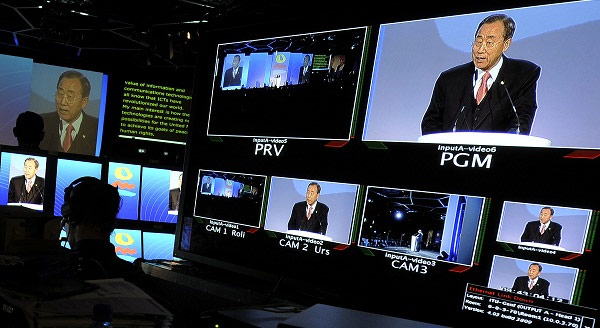{
"authors": [
"Philip Verveer",
"Nargiz Gurbanova"
],
"type": "event",
"centerAffiliationAll": "dc",
"centers": [
"Carnegie Endowment for International Peace"
],
"collections": [],
"englishNewsletterAll": "",
"nonEnglishNewsletterAll": "",
"primaryCenter": "Carnegie Endowment for International Peace",
"programAffiliation": "russia",
"programs": [
"Russia and Eurasia"
],
"projects": [],
"regions": [
"Central Asia",
"Caucasus",
"Western Europe"
],
"topics": [
"Economy",
"Trade"
]
}
On the Road to Baku: IGF-USA Preparatory Briefing for the 2012 Internet Governance Program
Thu, October 4th, 2012
Washington, D.C.
IMGXYZ3925IMGZYXAs internet usage around the world continues to spread, internet governance is facing its own major challenges. In November, international policy experts will convene in Baku, Azerbaijan for the Internet Governance Forum (IGF). The Carnegie Endowment for International Peace and the Internet Governance Forum-USA hosted a joint meeting to discuss the key issues likely to be on the agenda including current and future state of internet infrastructure, challenges and opportunities for stakeholders, and internet governing principles.
Speakers included the United States Coordinator for International Communications and Information Policy for the U.S. Department of State, Ambassador Philip L. Verveer and counselor at the embassy of Azerbaijan, Dr. Nargiz Gurbanova. Marilyn Cade, chief catalyst at IGF-USA, moderated the event.
Governing the Internet
- Role of the Internet Governance Forum (IGF) and IGF-USA: Cade explained that the IGF-USA is an open steering group available to anyone with an interest in issues of internet governance. IGF-USA convenes to broaden understanding and awareness about the multi-stakeholder model currently used to address internet governance challenges, Cade added. The United States is committed to a multi-stakeholder process, she said, but it also recognizes that this is a new form of interaction for some countries that is not always easily understood. One of the challenges facing IGF-USA is to increase awareness about internet governance.
- The Challenge of Multi-stakeholder Governing: Verveer agreed that the desire to exert tight control over the informational infrastructure of the internet makes the multi-stakeholder governing style discomforting for many countries, but repeated that the United States is committed to this process. Only multi-stakeholder governing allows the internet to evolve in an organic way and reflects American values, such as freedom of expression, he said.
- A Model: Verveer stated that that the United States values the IGF and its reputation as a multi-stakeholder organization. It is a celebration of lateral collaboration and should be a model for other governing bodies, he added.
- Improving the Process: In order to improve the IGF and its internet governance mission, Verveer stressed the importance of filling two UN vacancies: (1) the secretariat position formerly held by Markus Kummer; and (2) the part-time special advisor to the secretary general position. In addition, Verveer announced a U.S.-Azerbaijan dialogue taking place on November 6, which will coincide with the annual international IGF meeting in Baku. Both parties will be signing a memorandum of understanding.
World Conference on International Telecommunications
- Upcoming Conference: Verveer highlighted the upcoming key dialogue in December 2012, when Dubai will host the World Conference on International Telecommunications (WCIT) and open negotiations on the current International Telecommunications Regulations (ITRs). President Obama has appointed Terry Kramer as ambassador and head of the U.S. delegation to the WCIT.
- Conference Agenda: According to Verveer, some of the major issues on the WCIT agenda include regulations related to cyber security, mobile roaming, and internet architecture issues.
- ETNO Proposal: An important proposal to the WCIT, Verveer argued, comes from the European Telecommunications Network Operators Association (ETNO), and addresses the issue of enlarging and extending broadband infrastructures. The ETNO proposal, controversially, suggests the “transfer of monies” from those who send information to those who operate transmission systems, in an effort to share the burden of network investment. While this proposal could never be implemented in practice, Verveer noted, the issue is very real, and it raises questions about financing larger broadband infrastructures. According to Verveer, this will be an important issue at both the IGF in Baku and the WCIT in Dubai.
Azerbaijan and the ICT Industry
As host of the upcoming IGF annual meeting, Gurbanova highlighted some of the information technology advances that her country has been making recently. The Information and Communication Technology (ICT) industry accounts for ten percent of the gross domestic product of Azerbaijan, she said. Over the past ten years, Azerbaijan has invested $3 billion in the ICT sector. Because 80 percent of the industry is under private ownership, argued Gurbanova, there is a good, predictable environment for investment. Azerbaijan has demonstrated its commitment to the ICT industry, Gurbanova stressed, by engaging with the United States and regional countries and promoting multiple projects and initiatives.
Carnegie does not take institutional positions on public policy issues; the views represented herein are those of the author(s) and do not necessarily reflect the views of Carnegie, its staff, or its trustees.
Event Speakers
Philip Verveer
Nargiz Gurbanova